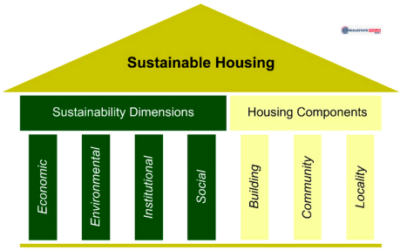

RBI Regulates Aviom India Housing Finance by Replacing Board Over Governance and Payment Defaults
The Reserve Bank of India (RBI) has superseded the board of Aviom India Housing Finance. The move comes after concerns over the company’s governance and payment defaults. The RBI’s decision aims to ensure that the housing finance firm operates under proper management to resolve these issues.
The action was taken due to the company’s failure to meet regulatory standards. Aviom India Housing Finance has faced issues with its financial health and operations. As a result, the RBI decided to take control to restore confidence and ensure that the company meets all requirements.
Aviom India Housing Finance has been experiencing defaults in payments, which has led to financial instability. This situation has raised questions about the company’s ability to maintain proper governance.
The RBI’s intervention is seen as necessary to address these concerns and protect the interests of stakeholders. The RBI has now appointed an administrator to take over the management of Aviom India Housing Finance.
This step is part of the effort to stabilize the company and ensure that it meets its obligations. The administrator’s role is to oversee the company’s operations and make decisions that will help resolve the issues.
The housing finance company has also been facing challenges related to its liquidity position. Payment defaults have put a strain on the company’s financial resources. These challenges highlight the need for stronger oversight to ensure the stability of the company and its ability to meet its obligations.
The RBI’s decision to supersede the board is based on the need for effective governance. The regulator believes that the current management failed to address the company’s financial issues.
This action aims to restore proper governance and bring about better management practices. This development has sparked concerns in the financial markets, especially in the housing finance sector.
Investors and stakeholders are closely watching the situation to understand how it will affect the company’s future. The RBI’s intervention is expected to help stabilize the company and improve its financial position in the long run.
The company’s management and shareholders will now have to work with the RBI-appointed administrator. This shift in management is necessary to address the governance and payment issues that have led to the current situation.
The focus will be on improving the company’s financial stability and governance practices. The RBI has emphasized that the move is in the best interest of the company and its stakeholders.
By taking control, the regulator aims to ensure that Aviom India Housing Finance can continue to operate and meet its obligations. The company’s future will depend on how effectively the new management addresses the issues at hand.
This intervention by the RBI also serves as a reminder of the importance of corporate governance. The financial regulator has made it clear that companies must adhere to regulations to ensure transparency and accountability.
Effective governance is essential to maintaining trust and stability in the financial sector. Aviom India Housing Finance now faces a critical period in its operations.
The company must take steps to resolve its liquidity issues and improve its governance structure. The intervention by the RBI is expected to help the company regain stability and return to a more secure financial position.
The housing finance sector will be closely monitoring the situation to see if other companies may face similar challenges. The RBI’s actions could signal a stricter regulatory approach toward firms with governance and payment issues.
The overall stability of the housing finance industry may depend on how well companies address these concerns. Aviom India Housing Finance has previously been involved in activities aimed at expanding its market presence.
However, the company has now faced significant challenges that have impacted its reputation and financial health. The RBI’s intervention aims to restore confidence in the company and ensure that it can continue operating in a sustainable manner.
The financial markets will also be paying attention to the long-term effects of this action. How the company recovers from this intervention will influence investor confidence in the housing finance sector.
Stakeholders are hoping that the RBI’s management will lead to positive changes and a more stable financial environment for the company. The RBI’s move is expected to help the company restructure and stabilize its operations. This will involve addressing its liquidity issues, ensuring that payments are met, and improving governance practices.
The goal is to return Aviom India Housing Finance to a healthier financial state while restoring trust with investors and stakeholders. The intervention could have implications for the broader housing finance industry.
Other firms may need to evaluate their governance structures and payment processes to ensure they meet regulatory standards. The RBI’s actions serve as a reminder that proper oversight is essential for maintaining stability in the financial system. Ultimately, the outcome of this intervention will depend on how quickly the company can resolve its issues and return to a position of strength.
The RBI’s involvement is crucial in guiding Aviom India Housing Finance through this challenging period. The company’s future depends on the effectiveness of the new management in restoring financial stability and governance.




































